Covid-19 66
The Science of Applause

The Science of Applause
As we clap to lift the morale of thousands of health workers, we search out the specialists
By Iris Oropesa Mecías digital@juventudrebelde.cu
April 2, 2020
Translated by Merri Ansara for CubaNews.
Edited by Walter Lippmann
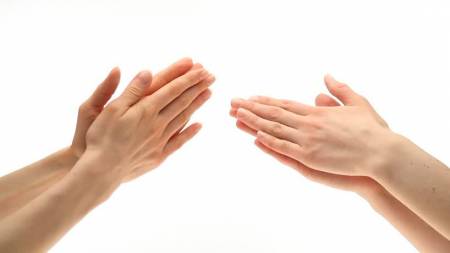
The Physics of Palms Author: Taken from the Internet Published: 02/04/2020 | 06:53 pm
One of the issues that we have valued much more since the beginning of the current pandemic is the work of every worker who has been kept in place. From artists who play for us in their homes, to street sweepers who stay in the streets, bakers and cooks, caretakers of the elderly, traffic inspectors, teachers who give digital classes on their own initiative… and yes, them, the everyday doctors, whom we applaud at agreed hours, a gesture that seems to us still small in the face of their daily greatness and which in countries like Spain has become almost religious in its fulfilment.
These are also days when we have to learn to deal with matters in an intelligent way. That is why this time Detrás de la ciencia goes in search of that mystery of hundreds of people clapping their hands on their balconies as we Cubans do every night. Is the applause an exclusively human gesture? How did it come about? What are the secrets of its contagion? What does science know about this social phenomenon?
Ovations with history
Most human beings just beat the palms of their two hands rhythmically. In some sectors there are variations. There are universities where tables are beaten when a lecture is over, or the well-known clapboards of tobacco farmers, for example. But, in general, applause is an expression of admiration for a well-done performance. And we find it so natural that we might come to believe it is part of our DNA.
Joaquim J. Vèa, a Catalan primatologist, has explained the human exclusivity of applause, quoted by the magazine Quo: “After many years studying primates in the forests, I have never seen a (non-human) primate applaud”.
This phenomenon is discovered totally socially. We are not born as a species knowing what applause is in its current concept. We need to learn it in society. History, then, is a science that has much to say about it.
The emergence of the custom dates back to ancient civilizations. The ancient Greeks expressed their approval of plays by cheering and clapping their hands. The Romans preferred to snap their fingers, but they also clapped and waved the tips of their robes, or used special strips just to generate a sound of admiration.
It is often said that Emperor Nero paid nearly 5,000 people to applaud his public appearances. They would practice two types of applause: imbrex, with hollowed-out hands, and testa, with flat hands.
Over the centuries, several sounds alternated in the taste to express approval of a show: whistle and even spit became among the favorites, widely used in the seventeenth century.
The churches, both during the Middle Ages and much later, in the Protestant era, played an important role alongside the theater, in the social development of applause. But even when the Catholic clergy forbade these manifestations at masses, coughing, humming or blowing through the nose became the way a brilliant sermon or a well-toned chorus was approved.
But this journey does not yet answer: why do we do it, what human needs do we satisfy in this very contagious cultural fact?
Think and feel your applause
Psychologists say that any form of applause satisfies the human need to express an opinion, a euphoric emotion, and the need to communicate with a protagonist with whom we cannot engage in a conversation in person. Social psychology specialists also explain that applause gives the audience the feeling that they are participating. Since the audience cannot pat the actors on the back, they applaud.
Another mystery studied by psychologists, which was published in a study in the journal Nature, by the way, was the highly contagious nature of applause.
The specialists who analyzed thousands of recordings of massive applause in different parts of the world concluded that the great contagion of applause is not due to the imperiousness that is recognized in itself, but to the social nature of the act of applauding.
Another study, from Uppsala University in Sweden and published in the Journal of the Royal Society Interface, sets out mathematical models for measuring applause in a social group, and shows that if a person starts clapping 2.1 seconds after a lecture or presentation ends, 0.8 seconds later the whole group starts clapping, whether they like it or not.
“We used the selection of the Bayesian model to test several hypotheses about the spread of simple social behavior, applause after an academic presentation. The probability that people will start clapping increased in proportion to the number of other audience members already ‘infected’ by this social contagion, regardless of their spatial proximity,” explained the lead author.
The Greek Plutarch (46-127 BC) says that due to paid plaudits, for example, Philemon of Syracuse (361-263 BC) managed to surpass the famous Menander (342-291 BC) several times in theatrical performances, not necessarily because he surpassed him in the dramatic.
The Physics of Palms
But science, this time physics, has discovered more than mysterious features of this social action. The authors of an article on applause published several years ago in Nature pointed out that they alternate in periods in which the ovation is an incoherent sum of palms along with other periods in which the audience applauds in a rhythmic and synchronized way, and they verified that in the synchronized applause the frequency of the palms of each spectator is half that of the incoherent applause.
The dynamics of the group applause was summarized: at the beginning of the ovation most of the applauses are enthusiastic and synchronization is not possible; but after about ten seconds the spectators reduce to half their applause frequency and a synchronization period begins. If you are a ballet lover, you will not let these scientists lie.
The journalist Juan Manuel Rodríguez Parrondo explained it this way: “Imagine that at the end of a play you have especially liked and you applaud as you would in the theatre; count the number of palms you give during ten seconds and obtain the frequency of the applause; repeat the experiment, but imagining that you are in the situation of synchronized applause. You will see that the frequency in the second case is about half that of the first.
This mystery of frequency doubling and synchronization of applause is a widespread phenomenon in nature and there is no particular reason for it, but it has been proved that nature likes periodic oscillations.
Heart rhythms, menstrual rhythm, the swing of a swing… Thus, a person tends to always applaud with two frequencies, one double the other, depending on his or her enthusiasm. But in short, it seems to be true that we have an unconscious attraction when we synchronize our applause with the rest of the audience.
Which of these scientific explanations do we put into practice when people from various regions of the world go out to their balconies to give their doctors a standing ovation? Probably, the psychological explanation of wanting to be part of something, of communicating with actors that we cannot pat on the back, this time, the best actors and actresses: all the health personnel who every day put themselves in the line of battle against the virus that is plaguing us. To compensate us, the Spanish clinical psychologist Juan Castilla assures us: “It is an invaluable gesture. We are not aware of the positive impact this generates”.
Let It Not Be Said

Let It Not Be Said
By Manuel Calviño
March 21, 2020
Translated and edited by Walter Lippmann for CubaNews.
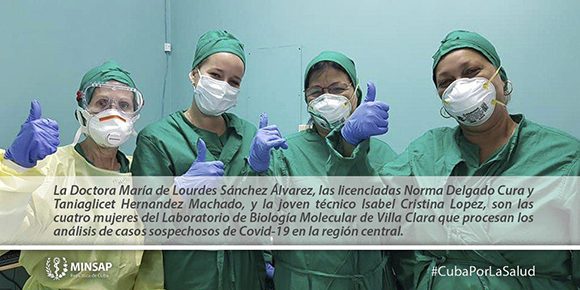
A hidden threat often triggers fear and anxiety on a personal level, in each of us. Knowing the possibly fatal effects of the threatening agent, multiplies the anguish and with it the tendency to seek solutions usually extreme and unlikely to be effective. If, in addition, these effects are visible, and they already affect others, then the cycle closes: perception of indiscriminate-risk increases the idea of vulnerability-uncertain resolution behavior. But even though it is known that in a pandemic situation, such as the one our planet is experiencing today, and our country is no exception, some are tempted to fall into the trap that distances them from appropriate behavior. There appear then, behaviors of neglect and denial (those that underestimate the situation, do not recognize it in its shocking reality, or hallucinate a certain invulnerability), and also behaviors that contain the necessary ones, but with a tendency to transcend them in excess, so much so that they can produce the opposite effect.
I believe that, in general, we have more in focus those who, due to an excess of confidence (personal and institutional), from an absolutely mistaken deduction (“nothing is going to happen here”, “I’m not going to be so unlucky”, and others similar), without taking into account the extra personal vulnerabilities. In other words, that is to say without the slightest perception of risk, ignore the essential measures of protection and care. I confess that some psychological traits make some more likely than others to build such an attitude. But nothing justifies or sustains it. We are what we are capable of doing with who we are. And that is how we build a better way of being.
But it is important to focus also on the other end of the bell of Gauss, that which describes what would be a normal distribution. Perhaps, by intensifying in order to attract attention, I mean those who hype-act the measures, with innovations of dubious value, moved from an excess of anxiety mobilization. When this happens, and the sense of basic care in the face of the pandemic is passed on, that which scientific knowledge dictates as essential actions, the way to face the situation seems to be helping us, but it may be harming us. Then, from a harmful mental disposition, any care seems little to us, and we can begin to produce not so careful care, which by its extreme nature, I insist, can be a generator of damage. Exaggerating is a common way of falling into what is being avoided.
Pandemics, in any of their forms, but the more aggressive they are, the worse they tend to promote among some people the idea, and not just the idea, but the deep belief, that along with the essential isolation of suspected and already victimized cases, the best thing is the total absence of links with everything around them. What, without a doubt, if this were the case, would have to be undertaken with supreme responsibility and at the right time. I therefore share a vigilance and a just and legitimate concern in this direction. A concern that is not stubborn and excessive, but constructive and sustained. In any case, legitimate, understandable and with the right to speak. Because only by talking will it be productive.
But I would like to refer to that action that implies having the unreasonable certainty that the enemy is anywhere, or rather everywhere, and that we have to find a hiding place at any cost and at any price. And I am not talking about the care and limitation of direct physical contact, which is usually one of the causes of the epidemic’s spread, but about the spiritual, identity-based sustenance of the forms of expression of human values. It would seem that for some people limiting behavior is synonymous with limiting, invalidating, the values they contain.
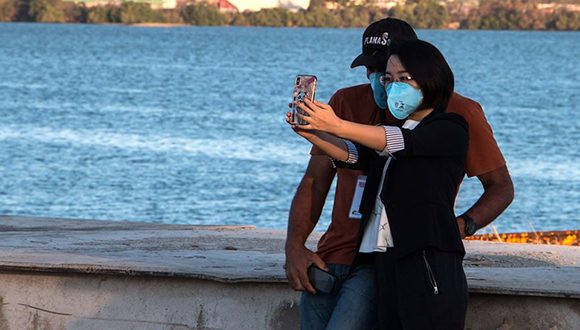
In bad weather, a good face. Photo: Abel Padrón Padilla/Cubadebate.
Let’s think about the challenge of distance. As a way to substantially cut the chain of transmission, scientists and professionals from many parts confirm the need to maintain a certain distance, they call for so-called social distance. What does this mean? In operational terms, maintaining a social distance means: not being in places where many people are, staying away from crowds of people; keeping a distance of about two meters from other people; not touching other people. Perhaps it is better to talk about physical interpersonal distance, to show that it is proposed to considerably limit physical contact, since it is one of the most powerful causes of the spread of the disease. Then, it is clear that shaking hands, hugging, kissing, these expressions of affection, love, friendship, companionship, tend to be substantially avoided in the current conditions of a pandemic.
But distance is not necessarily a problem. The problem is always separation. With you in the distance, it is not only a beautiful poetic phrase, but also an ethical attitude, a human relationship. García Márquez confirms it: “Distance is not a problem. The problem is the humans, who do not know how to love without touching, without seeing, or without hearing…” Ernesto Lecuona, in his beautiful Always in My Heart, convinces when he says that “nothing should be able to stop me from loving you”. The essence, is the essence, no matter how many different ways it is expressed. The essence of expressions of affection lies in the feelings and values that motivate them, and these can be lived, expressed and shared in many more ways.
Limiting is essential. But it is not necessary to limit, on the contrary, it is necessary to multiply, that spiritual, valuable substantiality that is expressed in this way. I am talking about the challenge of making the kiss, the embrace, the handshake felt, where it should not be physically realized. We know, paraphrasing Galeano now: good and authentic human feelings and values cannot be silenced. If they are not expressed in one way, it will be in another. But they cannot not communicate, they cannot stop interacting, co-living. To silence them would be to spread the maleficence of the pandemic.
The same goes for collaboration, solidarity, interpersonal relations, willingness to help and support. The axiom “all for one and one for all” applies, with undoubtedly different expressions, to these moments of indispensable precautions, but which cannot undermine the human essence. What we can achieve will always be more, and more forceful, if we do it together. That, on pain of being accused of being super-optimistic, is to emerge strengthened, resilient, from such violent and destructive adversity. That is, to take charge of an intelligent optimism.
A pandemic is not just a health, scientific, and political challenge. It is also, and above all from my professional perspective, an attitudinal challenge. It is our attitudes that protect us. It is they that get us through the situation. It is they who ensure that among the foreseeable consequences, there are also achievable conquests, just as “among the thorns, flowers are born”.
I defend, summon and fight for the self-care of each and every one of us. But, I need a self-care that implies, that includes the other (like a quantum reality, I could say some physicist). That self-care that knows how to take care of others, of ourselves. That which is not only personal responsibility, but human responsibility. That which commits us to preserve, and also to nourish and cultivate, our human essence, our condition as human beings. I say this because I know it professionally and scientifically, and I believe it deeply, “if I did not believe, what would I be?
But since temptations exist, since the human mind gives for the good and the not so good (even the bad), gives for the earthly and the divine, then it is necessary to be attentive, and to refer to our personal essence as human beings. I say more, to our national being, to our identity, to our being Cuban [somos cubanos]. So, to focus on our light zones and not on the dark ones, on what makes us a country where everybody is a brother, a partner, a friend, where anybody throws a line at anybody, where if we solve everybody, if we are participative, proactive, and extroverted (sometimes to diffuse limits), we are recognized as good people. Like that neighbor in my neighborhood, whom I observed from my balcony, who suffered the denial of a handshake with a buddy on the corner, and with genuine acceptance commented:
Who’s going to change what we are, let alone a virus, however many crowns he has?” And separating himself two meters away he said to the other: “Hand or no hand, I love you, my sister. You are on my team.”
You have to be careful. You have to take care of yourself. You have to let yourself be taken care of. You have to take care of each other. And we must also preserve the Cuban soul. “Let it not be said, brother, let it not be said.”
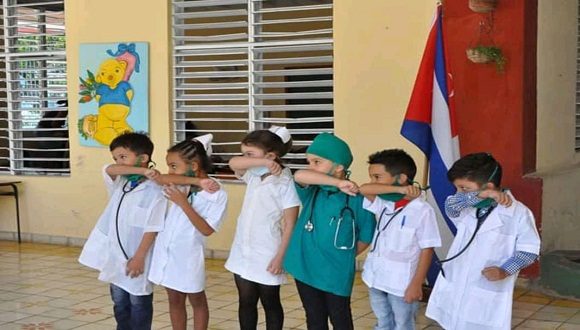
“Who’s going to change what we are, let alone a virus, however many crowns he has?” Photo: Rafael Martínez Arias/Facebook.
About “Those Dangerous Cuban Spies”
About “Those Dangerous Cuban Spies”
By Emilia Vera Da Souza
Translated by Stefanie Levi for CubaNews.
from PostCuba blog, who got it from the Argentine blog Opina Mendoza.
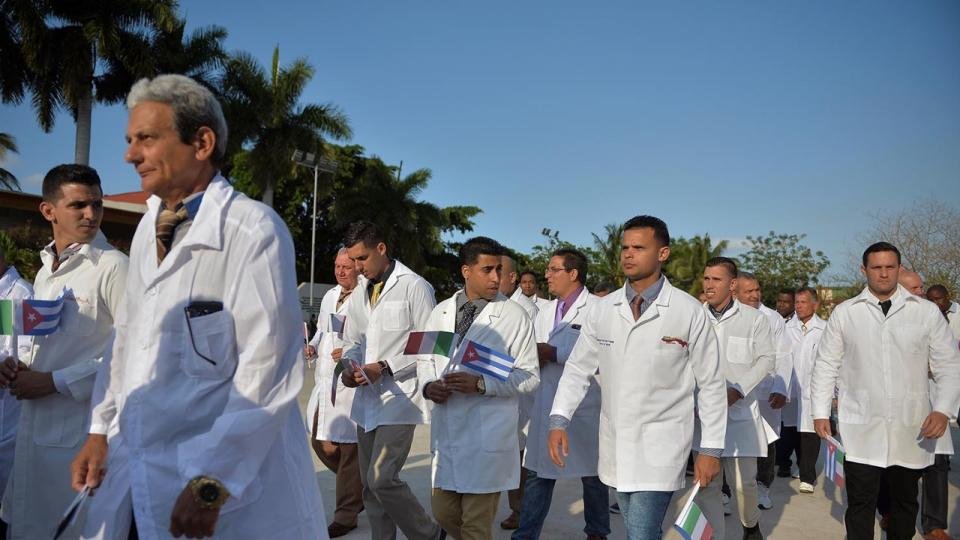
I suppose that it’s true…
Cuba, in the midst of this global health and economic crisis, decides to come spy and take some jealously guarded secrets [from] the concentrated centers of the elaboration of Argentinian thought, science and technology.
First, they must find where the centers where thought is elaborated, where science secretly investigates the most interesting issues for the advancement of world conquest and where they apply the technologies that will allow us to dominate planet Earth are located. Where? The Cuban spies ask themselves. And those of us that are not Cuban [ask ourselves], also.
Another problem for the Cuban spies. Who? What people are they that, in a hidden and surreptitious manner guard the most interesting issues of Argentinian intellectual development? Will these be in the communication media, well-camouflaged, where the most elaborate national thought is shown?
Will they be in companies that, so that nobody knows, they are paid poverty wages, but their owners have them well-guarded in impregnable dens, the results of their effort and they live publicly superficial and skin-deep lives in order that the Cubans do not take their best production?
Will the most advanced thoughts be in the political parties, hidden so that the Castro-communist ambition and egoism do not have access [to them]?
Will it be in the most recondite estates of justice, the secret that the Cuban spies seek so much, right there where the most elaborated of free thought is preserved, in order to better the lives of the citizens? And, so that it is not stolen, they do not show it, not even in the most hermetic places of the doctrinaire bureaucracy.
The most serious problem for the Cuban spies is to hide themselves. Everyone already knows that for a better performance of conspirational espionage, it is advisable to use a good cover-up, a good costume, scenery, a masquerade, makeup. And the Cubans lack precisely all of that.
They are recognizable at a distance by their tone of voice. They cannot speak without shouting. They usually have a skin color quite difficult to disguise. Nor are they able to minimize their peculiarities when they communicate: they always talk like Cubans, including when they speak in other languages.
They use easily identifiable insults: Come mierda (eat shit), hijeputa (motherfucker), que tu no sabes nada (that you know nothing), que ni lavas ni prestas el fregadero (you will not get anything), que te den candela (that they will give you fire), jinetera (?), concha de tu madre (your mother’s pussy), chico (dude) and other things like that.
They always substitute the letter “R” for an “L”. Because of this, they are able to spy on China.
It is also possible to recognize a Cuban by their style of walking. Carefree, as if tired, with a cadence of step that seems more like a dance move than [simply] a mode of moving.
And finally a bit of information: in order to recognize a Cuban spy it is advisable to put on some salsa music, a son or an island bolero, and if they start to move to the rhythm of the drums, they are undoubtedly Cubans.
Now… if they are well-seen, it can be observed that they usually walk with white overalls, stethoscopes hanging from their necks, with a little book in a bag and they take notes with very short pencils, spent from so much use.
They walk measuring the fevers of the miserable and sick in different corners of the world. They take care of children. But they take care of them so much that they do not have a single illiterate. But there is not one, not even a very little one that goes hungry.
They always circulate more closely to the places where the poverty of the skyscrapers nests. They move proudly, as if they have made a revolution. They shout calling attention and when they are silent, they also attract attention. They mention Fidel as if they know him.
They love Che and the Argentinians, as if they were the same. They hug wildly as soon as they make friends with someone and they leave from the island, full of consumable goods, according to foreign tourists, but, always, always, always each one (all) want to return to Cuba.
Cubaphobia tries to politicize the pandemic

Is He a Dummy, or is He a Booby Trap?
Cubaphobia: the attempts to politicize the pandemic and -irrationally- to put Cuba as the focus and center of the contagion, has already appeared on the political scene in Miami
By Juana Carrasco Martin
Translated and edited by Walter Lippmann for CubaNews.
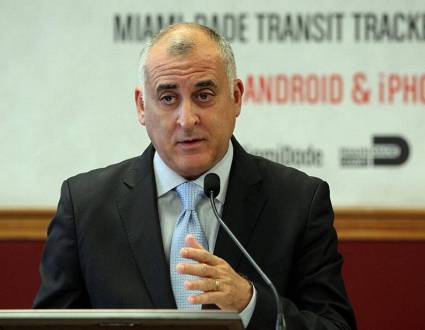
Esteban “Steve” Bovo, doesn’t look like a fool with his latest invention Author: Juventud Rebelde Published: 19/03/2020 | 10:50 pm
The new coronavirus has upset some people. The symptoms are a brutalization caused by bad intentions and Cubaphobia, translated into attempts to politicize the pandemic and -irrationally- to put Cuba as the focus and center of the contagion.
Of course, such bullshit could only come from Miami – a city contaminated for more than six decades by a visceral hatred and a vengeful desire for Cubans to disappear from the map, in order to appropriate this beautiful archipelago at any cost.
The most recent invention arrived with Twitter feeds and a letter sent to President Donald Trump by Commissioner Esteban “Steve” Bovo, asking him to place Cuba on the list of restricted travel to the United States, because “we need to take all preventive measures to protect Miami-Dade County and the state of Florida from the spread of COVID-19.
In Bovo County, the number of confirmed cases rose to 76 (March 18 data) and is increasing, as is the number of positive cases in all of Florida, which is almost 400, ranking among the highest in the 50 U.S. states.
Everyone knows, as do many Americans, including medical experts, and Democratic presidential hopefuls, say, that Trump did not act on SARS-CoV-2 in time, and that the public health care system — and, of course, the private health care system, plus the insurance companies — are responsive to the profits they can make, not the needs of their citizens.
Therefore, the records show that the United States is the country with the highest rate in the entire hemisphere, with 13,737 cases positive for COVID-19; 201 deaths and 108 recoveries. There are now 178 countries where the pandemic has made landfall.
However, the commissioner assures that Cuba has falsified its records, that it is rumored that the sick are Italians, that there have been no medicines in the country for a long time, and he dares to point out that “Cuba cannot protect its people, much less the tourists”.
Such is the blindness and bad temper of the aforementioned that he does not see how the world recognizes the benefits of the Cuban anti-viral recombinant Interferon alpha 2B, nor the gratitude of the passengers and crew of a cruise ship condemned to sail aimlessly through the Caribbean. [It wasn’t] until the humanism, solidarity and generosity of the largest of the Antilles and its people, opened a port and airport for them to return to the United Kingdom. A “I love you Cuba” was the best message from HM Braemar…
It would be good, in case they need it, to take into account that the Cuban pharmaceutical industry is prepared to treat thousands of possible patients with COVID-19, and our antiviral has already been successfully used in China.
The problem is that the Bovo is riding on the xenophobic bandwagon of the White House president, who never acknowledges his failures and looks for scapegoats in others, in order to also run an election campaign, since he hopes to be the mayor of Miami.
Nor does he care that if this extreme measure of cutting off travel between Havana and Miami were taken, it would totally sever the ties of Cuban families, a crime against humanity.
The Law and the Virus

The Virus and the Law
By Mileyda Menéndez Dávila
March 24, 2020
Translated and edited by Walter Lippmann for CubaNews.
“Yeah, I know what they’re gonna tell me, if I’m on the street for fun they’re gonna give me a ticket. So what? So I have another reason to get out of the house: to pay them. I’m not going to be locked up! If what you get, you get one day…
The (not so few) people traveling on the A95 this Monday would think that my (involuntary) chat partner would be joking, but I chose to think that her bravado, bordering on indolence, was her way of dealing with something that makes her nervous and she doesn’t dare to admit it.
“Let’s see, why aren’t you locked up,” she tried to challenge me by staring at her. “I’m going to work,” I explained, and she took advantage of the situation to justify herself: “And I’m going to fight! They brought out detergent in the Vedado and I already have a point that buys at a premium everything I get. For me, that’s ham, because I form my own in a line and I see the load.
I sighed long and deep. Explaining to the lady the legal and moral implications of her conduct would be like plowing in the sea. But people were paying attention to her gestures and I decided to take advantage of the improvised mobile platform for a preventive civic talk, including the teenager who was clearly accompanying her on the “walk”.
“It’s not just fines: You can be imprisoned for three months to a year… to begin with,” I let out in an intriguing voice, assuming that her “bogeyman” would be to lose his freedom. She raised an eyebrow, and still with a cheek, asked, “Why is that?”
“Because that is the penalty for those who commit crimes against public health, such as spreading epidemics or refusing to collaborate with the health authorities in campaigns to prevent them,” I said, summarizing Article 187 of the Cuban Penal Code. Then, without pause, I reinforced the blow: “If you also boast, as you do now, it can be assumed that you are acting maliciously and the penalty is five to eight years. Ah! and as an author, not an accomplice, so there is no reduction”.
She took a breath, as if to reply in a not very good way, and I took advantage of her gesture to add: “They also give three months to a year to anyone who incites others not to take action against an epidemic, so go on adding up… And if “doing your thing” is to create panic to tangle up the tail, that crime costs you one year to three more. And, of course, contempt for the authorities–and those who report actions at the Mesa Redonda are contempt for the authorities–is also a crime, and failure to take care of your dependents is also a crime under the law.
In front of us, a young man followed my monologue of legalese, splashed by the speaker with that sound that in Cuba we call “frying eggs”. His face showed disbelief, but he did not dare to support or deny the alleged anarchist.
Another gentleman, standing near the door, commented that, even putting it all together, the penalty was little for the gravity of the moment, So that gave me grounds to say that if injuries or deaths are proved to have been caused by an irresponsible attitude, the penalty is multiplied in years, not counting the punishment for hoarding products in an illicit economic activity.
“You want to put more fear into it than the coronavirus,” he cut off my explanation, no longer smiling. “And with me, that doesn’t walk. Besides, putting people in jail doesn’t solve the problem,” he insisted on defending himself, but the young man finally took a stand for common sense: “What not? If you stop exposing others with that, it will surely work, and in the long run, people will understand that this is serious, so let’s get back, pure, get back!
Our Duty is to Protect People

Our Duty is to Protect the People
Personal will and medical responsibility drives Alexander Labrada Torres every day to fiercely guard the border of Isla de la Juventud in the face of the COVID-19
By Roberto Díaz Martorell
March 23, 2020
Translated and edited by Walter Lippmann for CubaNews.
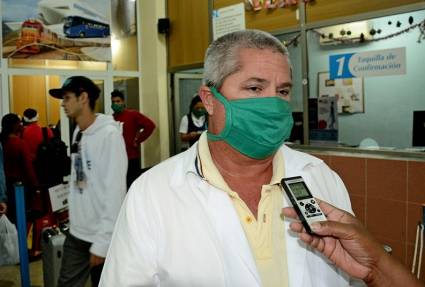
Dr. Alexander Labrada Torres is one of the many Cuban doctors protecting the borders to prevent the entry of the new coronavirus. Author: Roberto Díaz Martorell Published: 23/03/2020 | 08:55 pm
Nueva Gerona, Isla de la Juventud – The alarm clock sounds at 5:00 a.m. and Dr. Alexander Labrada Torres turns it off instinctively. His tired body resists getting out of bed, but the responsibility as a doctor gives him the final push and, as he did several weeks ago, he gets ready to do her duty.
At his side, his wife, Yuraika Gonzalez, diligently prepares breakfast and helps with the backpack. Nothing can be left behind: gloves, nasobuco (mask), cap, the water to drink, the glass…, and the kiss goodbye after the strong coffee to recharge the batteries. Alex goes out on his bike and travels the distance between his house and the Passenger Boarding Terminal in Isla de la Juventud, where he is the head of the border service dealing with COVID-19.
“Responsibility is inherent in every doctor and you comply with corresponding rigor, especially when it is your turn to look after the health of more than 500 people every dayl There are are two trips more than a thousand, in addition to the crew. In addition, each person conducts himself in a different way and sometimes it is very difficult to dialogue,” he says while organizing the work at the terminal.
First, he prepares with all the established attachments for cases like these, then he distributes the resources to the workers who, are obliged to interact with the people and watch over the fulfillment of the foreseen measures. It stops. He observes that everything is going well and he almost smiles.
“It is my responsibility to monitor every boat that leaves or arrives on the Isle of Youth; I do it together with the nurse on the catamaran to check the temperatures and the active search for any respiratory symptoms. The first trip begins with the check of bulletins from 5.30 a.m., and when we set sail, contact with the director of the entity along with the board of directors to assess the implementation of health and hygiene measures in all its units.
“And if it were only one trip, it would end with the reception of the boat around 3:00 or 4:00 p.m., but on Mondays, Wednesdays, and Fridays there are two,. On the second one, the control begins around 2:00 p.m. That second trip arrives in Nueva Gerona after midnight and sometimes until 4:00 a.m., and already at 5:30 a.m. a new day begins.
“I am very grateful to my wife; without her support, it would be very difficult to complete these schedules, I almost always arrive at the house to eat and sleep. I almost always arrive at the house to eat and sleep. While keeping myself informed of the hygienic and epidemiological situation of the country and the municipality,” he says, taking a seat to “refresh” the tiredness caused by the intensity of the work and sleeping after hours.
But Alex is not satisfied yet; he still thinks that a large part of the population does not understand the magnitude of the situation and maintains inadequate behavior. “The fact that, in Isla de la Juventud, there are still no confirmed cases of COVID-19 does not eliminate the conditions of vulnerability for contagion and that is avoidable if the measures of the Ministry of Public Health are fully complied with,” he explains.
“I get tired and I get better; fulfilling my medical responsibility is the daily vitamin I consume. We can’t afford not to identify a COVID suspect, because I know that with my work I’m protecting an entire island that expects the best from me,” he says.
At the Viajero maritime terminal in Nueva Gerona, no confirmed positive cases are reported, but they are on high alert. Any respiratory or feverish symptoms are monitored in those who leave or enter the territory by this route. “Here we have a post or isolation room, health hearings are held for passengers during their stay. Also, when they board the boat they disinfect their hands with sodium hypochlorite,” he explained.
During the trip to the port of Batabanó, the catamaran carries a nursing staff with the necessary medical supplies to act in case of an emergency and also during the three hours of travel is observed the conduct of passengers, if necessary to activate the protocol provided.
Alex tells us that the most critical day happened with the first Italian who arrived in the territory with catarrhal symptoms and he was on duty at the General Teaching Hospital Héroes del Baire. “Everything was very fast, with no time for training, and we didn’t have much knowledge of the disease. It was a long night without sleeping and I was worried, because I didn’t know what would happen in the morning. Luckily it was negative; the patient only had to be treated for pneumonia.
“I have been counting the days for two weeks in a row, but I have the confidence and assurance that my personal actions are helping to keep this little island free of the coronavirus. And I know that, like me, there are thousands in the country who keep a permanent watch on our borders; a hug for them and we continue to fight. Our duty is to protect people and we will do it,” he emphasized.
Subscribe to Blog via Email
| M | T | W | T | F | S | S |
|---|---|---|---|---|---|---|
| 1 | ||||||
| 2 | 3 | 4 | 5 | 6 | 7 | 8 |
| 9 | 10 | 11 | 12 | 13 | 14 | 15 |
| 16 | 17 | 18 | 19 | 20 | 21 | 22 |
| 23 | 24 | 25 | 26 | 27 | 28 | |

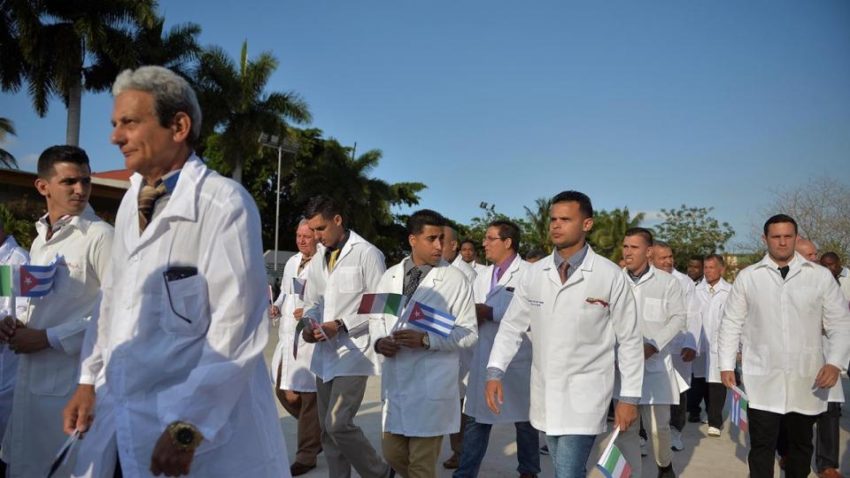
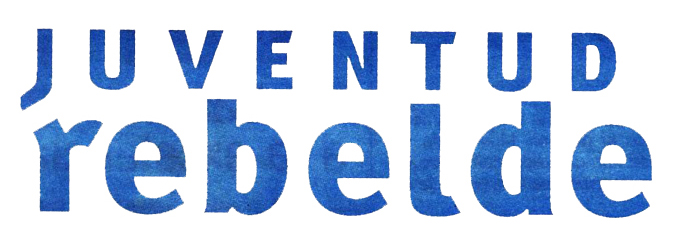
You must be logged in to post a comment.